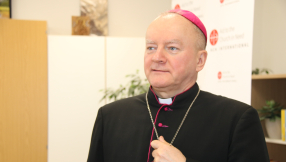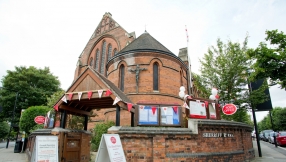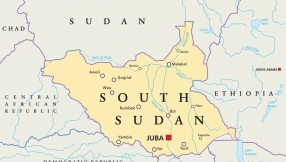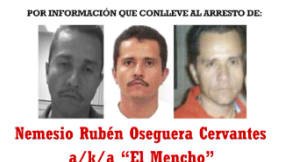The Pope has used a historic visit to Iraq to lament the destruction wrought in the country by violence and extremism.
In a speech to diplomats and civil servants, Pope Francis called for an end to partisanship and said the voices of peacemakers and the poor needed to be heard. He also urged the international community to do its part in supporting peace in Iraq.
"May the clash of arms be silenced," he said, adding later on that the name of God can never be used "to justify acts of murder, exile, terrorism and oppression."
"May there be an end to acts of violence and extremism, factions and intolerance," he said.
"May room be made for all those citizens who seek to cooperate in building up this country through dialogue and through frank, sincere and constructive discussion."
He went on to urge Iraq's leaders to build a society in which all people are treated equally.
"It is essential to ensure the participation of all political, social and religious groups and to guarantee the fundamental rights of all citizens," he said.
"May no one be considered a second-class citizen."
He mentioned specifically the Yazidis who he said had been "innocent victims of senseless and brutal atrocities, persecuted and killed for their religion, and whose very identity and survival was put at risk."
With the Christian community almost disappearing from Iraq in the last two decades, the Pope also spoke of his hope in the country becoming a place where Christians could once again flourish.
"The age-old presence of Christians in this land, and their contributions to the life of the nation, constitute a rich heritage that they wish to continue to place at the service of all," he said.
"Their participation in public life, as citizens with full rights, freedoms and responsibilities, will testify that a healthy pluralism of religious beliefs, ethnicities and cultures can contribute to the nation's prosperity and harmony."
Pope Francis arrived in Iraq on Friday for his first foreign trip since the start of the coronavirus pandemic.
While he noted the considerable challenges that Iraq and other countries are facing in rebuilding and recovering after the pandemic, he said the world needed to emerge from the crisis "better than we were before, and with shaping a future based more on what unites us than on what divides us."
This makes it necessary to "rethink our styles of life" and "the meaning of our existence".
"We never emerge from a crisis the same as we were; we emerge from it either better or worse," he said.













